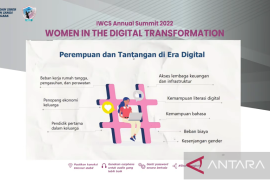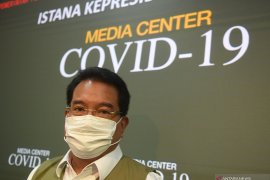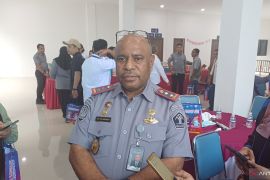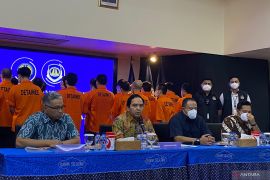Thomas said in a press statement here on Thursday that the number of Chinese workers absorbed in Chinese projects in the January - September 2016 period was only 3,718, or about 0.3 percent of the total workers employed in the same period, which stood at 975,898.
The total number of workers consisted of 17,966 foreign expatriates and 957,932 Indonesia workers.
"This is deplorable (the rumors that Indonesia is flooded by some 10 to 20 million Chinese workers). President Jokowi, during the National Christmas celebration function, asked all sides to cease spreading rumors regarding an alleged influx of foreign workers," Thomas said.
President Joko Widodo (Jokowi) recently denied the allegation that the number of Chinese migrant workers in Indonesia now runs into the tens of millions.
"Many have said the number of Chinese migrant workers in Indonesia is 10 million, if not 20 million. When did they actually reach that figure? According to our calculation, the number is 21,000. That is very small," he said, while addressing the declaration of the national apprenticeship movement in the Karawang International Industrial Estate in West Java on Friday (Dec 23).
He also expressed the hope that people would not be swayed by a misleading issue, as it may lead to a controversy in the country.
There is a small possibility that Chinese nationals work in Indonesia due to the large differences between salaries in the two countries, he noted.
"It is unlikely for workers from Hong Kong, the United States, and Europe to find employment in Indonesia, because salaries there are higher than in our country," he explained.
The president recalled that Indonesia has set a target to attract more Chinese tourists.
"The target is to attract tourists. If any of them work illegally, the immigration authorities and the Manpower Ministry will take measures against them. But logically, it is unlikely for them to find jobs here, because their salaries in China are twice or thrice as much as ours," he stressed.
He pointed out that the Foreign Ministry will evaluate the visa-waiver privilege offered to several countries.
If any tourist is found abusing the free visa policy, the immigration authorities and the police will investigate, he reiterated.
"As a policy has been in place for some time, it will no doubt be evaluated to see if it is dangerous, not productive, or whether it should be scrapped, as well as determine who must be allowed a waiver from visa requirements," he underlined. (*)
Editor: Heru Purwanto
Copyright © ANTARA 2016











